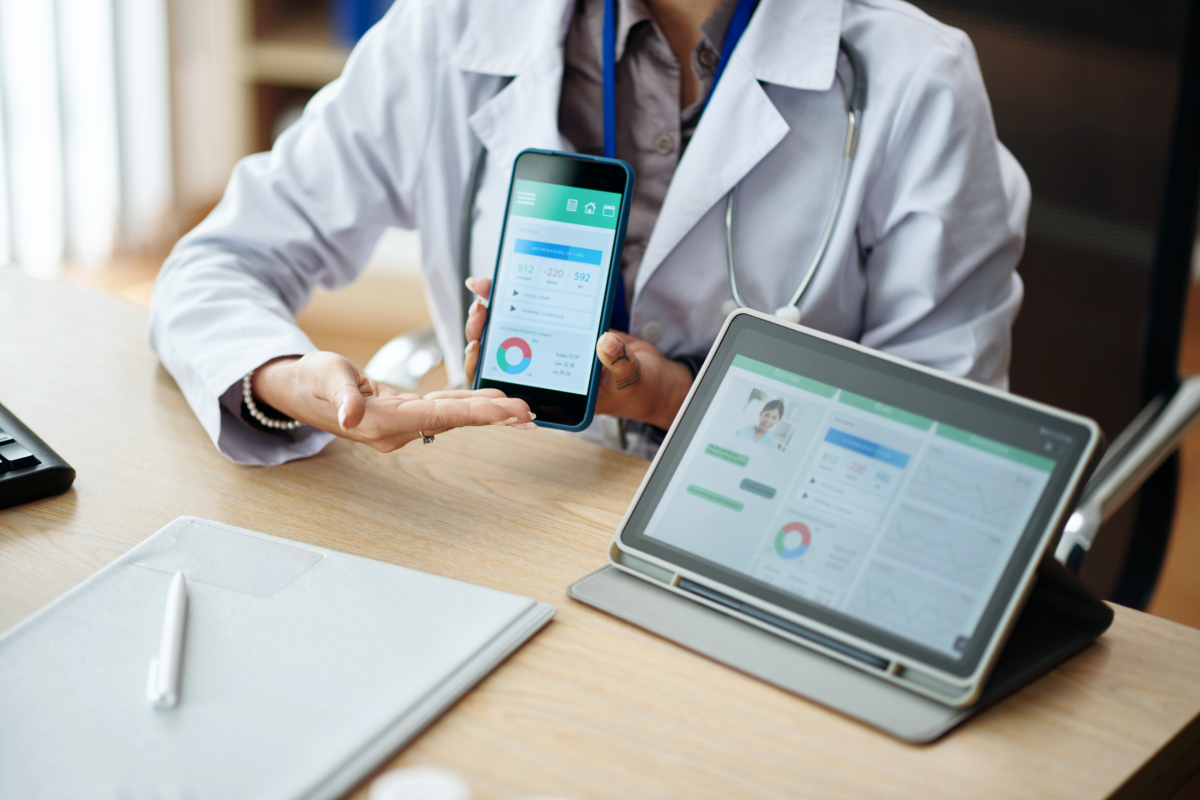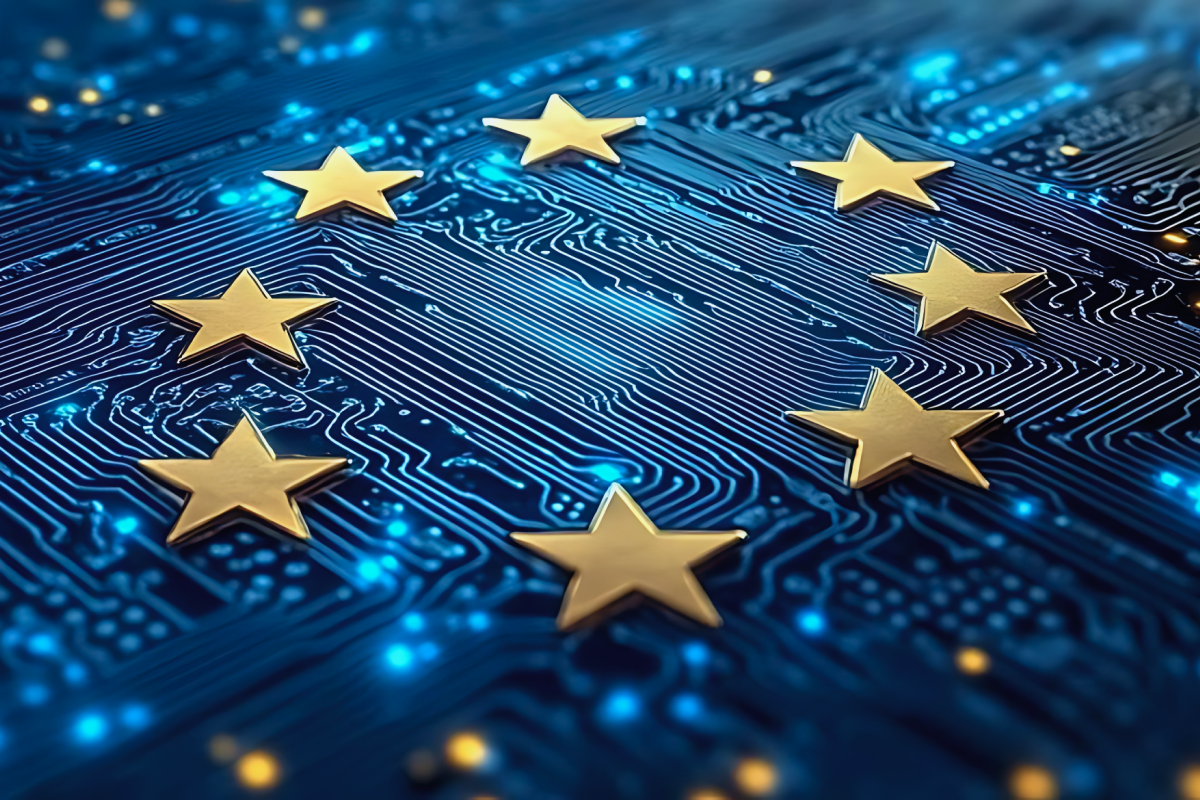Medical chatbots can improve care quality, patient satisfaction, revenue growth, and other aspects of healthcare delivery. Amidst the hype of generative AI chatbots like ChatGPT, these intelligent conversational agents will greatly benefit the healthcare industry. Whether pre-admission diagnosis, prescription, or billing, stakeholders in the industry anticipate the gradual but eventual adoption of chatbots.
At Uptech, we’re prepared for how the future of chatbots in healthcare will unravel. According to a study, the healthcare chatbot market will be worth $4.3 billion by 2030. With our knowledge and experience, we can help you develop solutions that meet evolving demands and healthcare requirements. And judging by the statistics, the time is ripe for startups and SMBs to build medical chatbots.
Somehow, building a healthcare chatbot is not straightforward. You'll need to be mindful of the challenges involved. You'll need to understand compliance, data privacy, and ethical concerns that come with integrating AI chatbots with healthcare solutions.
In this article, we’ll explore:
- How chatbots benefit the healthcare industry
- Possible chatbot use cases in healthcare
- Challenges when developing chatbots for health and medical purposes
Let’s begin.
What is a Healthcare Chatbot?
Healthcare chatbot is a software powered by artificial intelligence and natural language processing (NLP) technologies. They’re designed to converse and answer specific questions that patients ask in similar ways a human caregiver would. You can imagine healthcare chatbots like ChatGPT repurposed and integrated with healthcare solutions.
Generally, there are three types of healthcare chatbots that you can build — informational, conversational, and prescriptive.

Informational chatbot
The simplest chatbot that you can build and deploy on medical solutions. However, it is also the most limited. Informational chatbots broadcast information but cannot respond to specific questions. You can use them to help direct users to resources or broadcast updates.
Example: Patients can check a clinic’s consultation hours and services by asking the chatbot.
Conversational chatbot
If you want an AI chatbot that can engage in a human-like manner on various healthcare subjects, a conversational chatbot is the answer. Unlike an informational chatbot, which only broadcasts information, a conversational chatbot can interact with patients more intelligently.
That said, not all conversational chatbots share similar capabilities. Some are limited to answering basic questions, but others, equipped with machine learning and NLP technologies, can take part in more complex conversations.
Example: Telehealth chatbots let patients seek information about their symptoms before arranging for an in-person consultation.
Prescriptive chatbot
Prescriptive chatbots work similarly to conversational bots, except that they assume the role of a medical advisor. These chatbots are trained to provide professional medical guidance to patients.
Because of their critical role and nature of usage, prescriptive chatbots require more effort to build. Not only these chatbots must be trained with appropriate datasets, but they must also be proven accurate and ethically fair to comply with stringent healthcare laws.
Example: Patients can consult a prescriptive chatbot and receive a qualified diagnosis.
Explore generative AI in healthcare use cases, possible challenges, and best practices in our article.
What are the benefits of AI Chatbots in Healthcare?
Doctors, medical staff, patients, insurers, and other stakeholders stand to benefit from chatbot implementations. Here’s how.

Improve patient interaction and engagement
A medical chatbot can keep patients engaged throughout their care journey. From admission to post-treatment care, patients can rely on the chatbot for updates, clarifications, and follow-ups. With 24/7 access to medical resources, patients will be more satisfied with their experience with the medical provider.
Automation of routine tasks
Medical staff and doctors are burdened by administrative tasks, which rob them of precious hours in rendering medical care. AI medical chatbots can automate many mundane workflows, including patient registration, appointment scheduling, claims submission, and electrical medical records (EMR) management. This way, medical practitioners can dedicate more of their time to patients.
Data management enhancement
You can use healthcare chatbots can streamline the entire medical data pipeline in a healthcare facility. This helps prevent unnecessary manual intervention For example, patients can register themselves with the chatbot instead of furnishing personally identifiable information to the administrative staff. As long as the chatbot is designed with security in mind, healthcare providers can alleviate patients' privacy concerns.
Increase patient query resolution speed
As evident, a generative AI-powered chatbot can answer questions almost immediately. Likewise, healthcare chatbots can address medical issues without delay. Rather than texting or calling up their doctors, patients can clarify their concerns remotely via the chatbot.

Reduce healthcare service costs
Healthcare providers constantly strive to reduce operating costs to be profitable. However, there is little room to maneuver without affecting care quality. Chatbots can reduce manual agents and labor at various patient touchpoints. And the amount saved can be substantial. According to a study, chatbots can reduce up to 30% of customer service costs, which will have a substantive impact on a hospital’s financial outcome.
Learn how much does it cost to build an AI system from our blog article.
Enable 24/7 availability for patient assistance
Medical bots can eliminate service delivery gaps, allowing patients to receive medical advice and access healthcare resources at all times. As long as they’re hosted on scalable servers, you can increase their capacity according to the service demand.
Provide anonymity and privacy for patients
In human interactions, patients might hesitate to share information pertaining to their conditions, particularly if it involves mental health and abuse. Medical AI chatbots provide a safe space for them to share sensitive medical information freely.
15 Use Cases of AI Chatbots in Healthcare
There is no doubt about the benefits that healthcare providers gain from implementing AI chatbots. Exploring chatbot use cases in healthcare and incorporating those ideas into your app can improve your competitive edge, engage your patients better, and more. We share some practical AI chatbot applications for healthcare below.

1. Appointment management
AI chatbots can help patients skip the queue when making appointments or rescheduling them. By integrating the chatbot into the medical provider’s healthcare system, patients can view and manage their appointments by asking the bot in plain language.
2. Medical AI assistant
AI chatbots are not meant to replace medical practitioners. But they can be very adept assistants if they are developed and trained appropriately. Medical chatbots can assist in:
- determining symptom severity
- proposing treatment plans
- scheduling follow-up appointments
- prompting patients to fill out questionnaires to keep doctors updated on their recovery progress.
We have a comprehensive guide on how to create an AI assistant. Check it out!
3. Patient onboarding
Onboarding patients can be performed more effortlessly with an AI chatbot. By training the chatbot to follow an onboarding flow, it can automatically disseminate relevant instructions and educational material to patients. Moreover, the chatbot can answer any queries that arise during the process.
4. Clinics and pharmacies locator
If you want to help patients find your clinics easily, you can integrate chatbots with real-time searches. This way, patients can search and reach out to medical premises in their vicinity. The chatbot can ask questions about their location, symptoms, and other medical needs before searching for possible facilities.
5. Medication reminders
Some patients might forget to take their pills unless reminded regularly. With an AI chatbot, patients will receive timely reminders and refill their prescriptions on the app when required. You can also use chatbots to clarify patient’s doubts about dosage, side effects, and other medication concerns.
6. Diagnostic preparation
Prior to getting their X-ray, CT scan, full body check, or other diagnostic done, patients must undergo certain preparations, such as fasting or adhering to a specific diet. Doctors can send reminders several days leading to the appointment to ensure the procedure proceeds smoothly with chatbots.
7. Telehealth support
Some patients prefer to consult doctors at home. Chatbot technologies in healthcare enable medical experts to support patients virtually more effectively. The chatbot acts as the first point of contact. It asks pre-triage questions, provides medical resources, and transfers conversation to a doctor when and as required.
Learn how to build a virtual healthcare assistant in our guide.
8. Health insurance claims assistance
Patients often need help filing their insurance claims. You can integrate healthcare systems with insurers to streamline and automate the process with AI chatbots. Patients can immediately check the claims they're entitled to, submit them, and follow up on approvals with the chatbot.
9. Post-diagnosis education
Medical chatbots can provide patients access to expert-vetted resources as they seek more information after being informed of their diagnosis. To ensure clarity, medical experts can convey information that is personalized to patients based on their results.
10. Collecting patient feedback
If you want to improve patient care delivery, it’s essential to learn what patients feel about their experience. With an AI chatbot, patients can voice their thoughts by answering simple questions. Moreover, the process is non-intrusive and takes place in a non-judgemental environment.
11. Retrieving medical records
When integrated with EMR management, you can use the chatbot can help patients to retrieve their medical records conveniently. Instead of navigating through layers of procedures, patients provide their credentials to the chatbot and get their records in seconds.
12. Launching disease prevention campaigns
Medical chatbots can also disseminate messages to increase awareness amongst the public, particularly during seasonal colds, flu, or disease outbreaks. For example, the chatbot can send instructional videos highlighting symptoms of heart attacks to at-risk groups. You can also train the chatbot to gauge the public’s response by answering simple quizzes.
13. Medical research assistant
Clinical researchers need to study, compile, and analyze volumes of medical literature to develop new drugs—a process that can take months. AI chatbots can significantly shorten the time. Likewise, doctors can compare medical notes among numerous records in healthcare databases.
14. Hospital admin chatbot
To keep a healthcare facility operational, medical staff are tasked with administrative tasks like filing records, data entry, and discharging patients. Integrating chatbots with healthcare workflow reduces the time spent on routine tasks, allowing medical staff to focus on more critical work.
15. Billing and insurance assistant
If you want to prevent costly billing mistakes, leverage AI chatbots. They can prevent claims rejection by ensuring accuracy when preparing medical bills. Besides streamlining communication between insurers and healthcare providers, chatbots can retrieve medical codes like CPT accurately and promptly.

Challenges in Implementing AI Chatbots in Healthcare
Before you build your healthcare chatbot, it’s important to be mindful of legal, technical, and security challenges that you may encounter. Unlike some other industries, healthcare is a highly regulated sector. Moreover, generative AI, which powers advanced chatbot applications, is still an evolving technology.
We share some of the common challenges we’ve identified and solved below.

Data privacy & security
Building, training, and implementing an AI chatbot requires exposing it to volumes of data, which often includes personally identifiable information and sensitive medical records. Without protective measures and policies, you risk exposing sensitive data to the public and fall victim to cybercriminal attacks.
Healthcare providers, which prioritize trust and loyalty, couldn’t afford to risk their patient’s privacy. Therefore, ensuring data security and compliance with regulatory acts like HIPAA is crucial when developing medical chatbots.
At Uptech, we employ mitigative measures like encryption, vulnerability assessment, and security testing to minimize data risks. Our team works closely with healthcare providers to build secure, compliant, and trustworthy AI-powered solutions.
Handling complex and sensitive interactions
Patient communication can be complicated, considering the various circumstances they might face. Just like medical professionals, AI chatbots need to be tactful when conversing with patients. They shouldn’t come off as overbearing, insensitive, or disrespectful when providing information or gathering feedback from patients.
Also, chatbots must not overstep legal boundaries and provide medical advice they are not authorized to. For startups, charting out the chatbot’s interaction path is challenging because the line separating a helpful chatbot and one detrimental to patient experience is sometimes unclear.
If you need help creating an AI chatbot capable of navigating complex interactions, our experience will prove useful. We integrate NLP models with chatbots and train them to anticipate various scenarios. More importantly, we set the thresholds where the bot would escalate the conversation to a trained medical expert.
Integration with existing healthcare systems
Medical AI chatbots cannot operate independently. They need access to systems and information stored by different medical departments. For example, to receive a diagnostic report, the AI chatbot first validates the patient’s details with the patient management system. Once confirmed, it searches and retrieves the patient’s report from the lab’s database.
Enabling AI chatbots to access medical information across disparate systems is challenging. Firstly, you might face interoperability issues where the AI chatbot cannot exchange data with existing or legacy medical systems. Besides, it’s also crucial to ensure that data security is not compromised when providing the chatbot access to other medical databases.
We’re aware of potential challenges in integrating chatbots with existing medical solutions. Prior to building a chatbot, we study the entire system architecture in the hospital, clinic, or other medical facility. We analyze the data exchange protocol, tech compatibility, workflow, and other requirements to ensure seamless integration.
Our goal is to prevent disruption to routines that medical staff and patients undergo daily. When needed, we provide training, tutorials, and resources that help them transition to the new clinical management system.
Where to Start with AI Chatbot Development in Healthcare?
Developing a medical AI chatbot requires a combination of AI capabilities, healthcare industry experience, and app development skill sets. Most SMBs and startups partner with an AI development company to reduce risks and accelerate development to produce a market-aligned solution.
If you’re not sure where and how to kickstart your AI chatbot project, consider partnering with Uptech. We’re an international app development company, recognized by Clutch. We help founders worldwide turn their ideas into marketable products. More importantly, we’re also leading digital transformation with AI technologies.
SMBs and startups choose us to integrate generative AI chatbots into their products because of our deep expertise in AI/ML. We’re adept with large language models, NLP, and best practices in building secure and compliant AI solutions. Our AI experts provide end-to-end development service, which includes post-launch support to ensure your AI chatbot operates smoothly in the field.
For example, we built Angler AI, a customer growth platform that integrates AI capabilities with marketing analytics. Users can create AI-based campaigns that can predict potential conversions based on the underlying AI engine. This allows marketers to strategize their ads and allocate budget wisely. Check our cases for more AI cases, like Dyvo.ai, Tired Banker, and Hamlet.

Another interesting project we did was a medical record summarizer. The AI-powered chatbot applies natural language processing and machine learning to retrieve key information from patient’s records. While we built the solution as an internal project, it demonstrates the possibility of improving patient care delivery by automating tedious administrative tasks. More importantly, we built the PoC of the chatbot for only $25,000, a price point that SMBs and startups found comfortable.
Drop us a line to get a free consultation on medical AI chatbot development. Our expert team will examine your project, suggest tech solutions and make a cost estimate.
FAQ
How much does an AI chatbot in healthcare cost?
Expect to invest between $30,000 to $100,000 or more to build a healthcare chatbot. Several factors influence the final cost you pay to build a chatbot. This includes the features, complexities, UI/UX design, collaboration model, and the AI developer’s location. You'll also find it more expensive to develop chatbots with advanced artificial technologies, such as generative AI. That's because developers require more time and effort to train, fine-tune, and evaluate the model before integrating it with the chatbot app.
Where are chatbots used in healthcare?
You can use chatbots in various healthcare workflows, such as patient registration, medical billing, clerical tasks, and insurance claims. Besides in-patient care, AI chatbots are also helpful outside of care facilities. For example, patients can use chatbots for medication reminders, appointment scheduling, and locating nearby pharmacies.
What are the disadvantages of chatbots in healthcare?
Chatbots are generally beneficial, but there are some drawbacks to consider. With chatbots, patients lack human interaction. Some patients might still prefer conversing with humans. Moreover, generative AI-powered chatbots collect and process sensitive personal and medical information at scale, making them targets for cyberattacks.
How chatbots can help doctors?
With chatbots, doctors can free themselves from time-consuming manual tasks, such as searching for medical records, summarizing diagnoses, communicating with patients, and more.
How to develop a healthcare chatbot?
Follow these steps to build your own AI medical chatbot.
- Define your project scope and requirements.
- Consider applicable regulatory compliance, such as HIPAA and GDPR.
- Plan the chatbot development, including milestones, documentation, and techstacks.
- Choose an appropriate AI/ML model.
- Train or fine-tune the model to operate in the specific scope. For example, chatbots for clinical research and filing insurance claims need to be trained with different types of datasets.
- Evaluate the chatbot’s performance, including consistency, accuracy, and bias.
- Integrate the chatbot with existing healthcare systems.
- Seek approval from authorities if necessary.
- Test the chatbot with a select group of users before releasing it.
- Launch the chatbot, educate users, and provide ongoing technical support.

























































































.avif)











